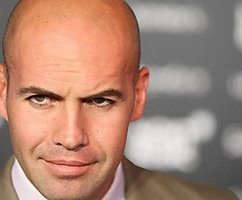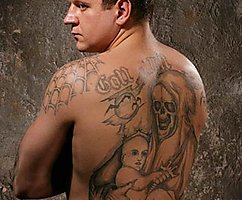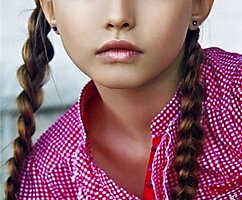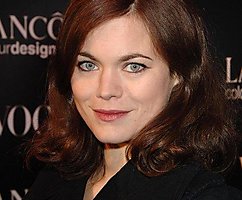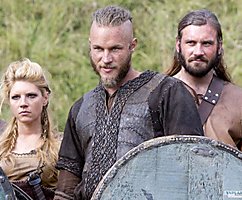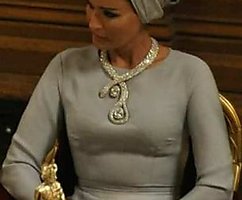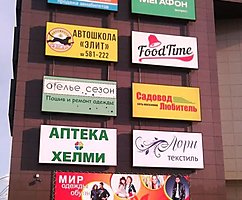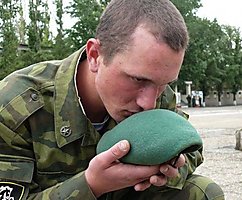20 Soviet films that Harvard University is considered mandatory viewing
 Bashny.Net
Bashny.Net
Recently Harvard University published a list of the most important in the history of movies, which included 20 domestic films. Anyone who claims to be a PhD in film studies, they are a must see.
Film critic Dmitry Karpyuk explained what's so good about these pictures, and why they are so highly appreciated at Harvard.
"Kino-eye" (1924) and "Man with a movie camera" (1928)
Director: Dziga Vertov
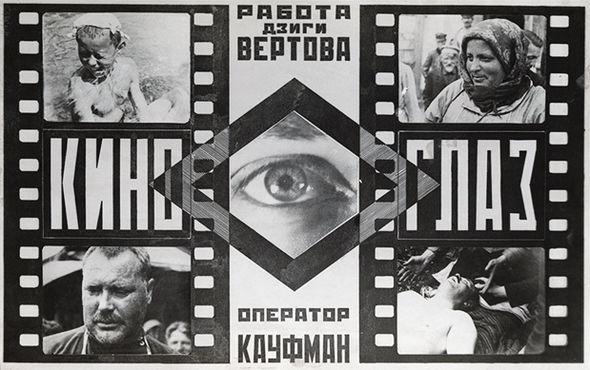
It is not clear how they can be considered separately. Both films are like a dark magician's top hat — all possible kunshtyukov and technical tricks were invented 20 years Vertabim, and filmmakers I admire and borrow them until now. "Battleship "Potemkin""
Director — Sergei Eisenstein (1925)
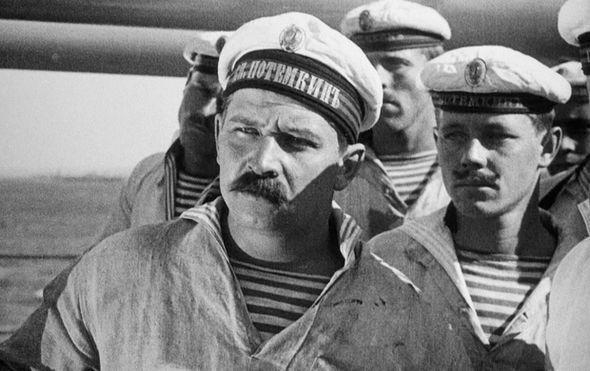
One of the best if not the best film of all time, according to the opinion of many authoritative critics, filmmakers and ordinary viewers. The film will definitely be interesting and innovative installation and raskatannoe to quote the scene of the shooting on the Odessa steps, but one of the most vivid and painful images in the movie — the awakening of the sailors of the battleship from sleep slave once they tried to feed worms meat. After a meal they seemed to see clearly the essence of its existence and break out of the cocoon of apathy and obedience. All the rest is history, including the history of cinema.
"Under the law"
Director — Lev Kuleshov (1926)
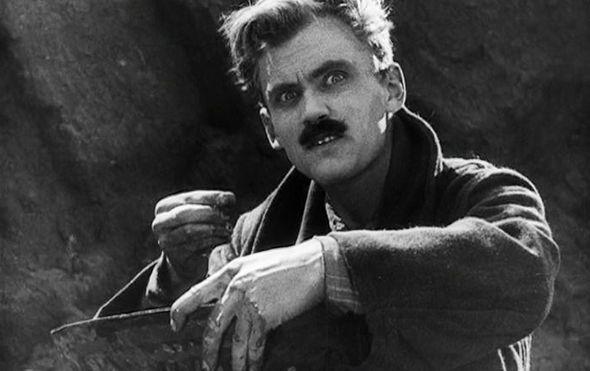
In this adaptation of the story of Jack London "Unexpected" Kuleshov built Yukon on the Moscow river. First and foremost, the film is a remarkable combination of ragged editing and long plans, but even aside from the technical nuances, it still looks like at least with interest because of the moral dilemma is to make the murderer a lynching or to give it into the hands of the law.
"Mother" (1926) and "the End of St. Petersburg" (1927)
Director: Vsevolod Pudovkin
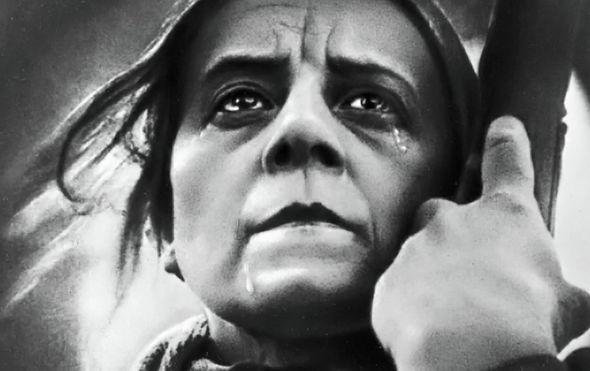
The first film, an adaptation of Maxim Gorky and one of the greatest achievements of the Soviet cinema. A poignant story about the family of the father of the black hundreds, the son of a revolutionary and loving mother, dying with a red banner in his hands beneath the hooves of mounted police.
The second is also a political film about the struggle of the Bolsheviks with the world of capital, the collapse of the Empire through the tragedy of the little man.
Makes them not only the absence of sound, the call to "sing, revolution!" and a fascinating use of multiple exposures, but the actor Alexander Chistyakov. In one film he played the father-the tyrant with a beard of pan, and the other work leading the storming of the Winter Palace.
"Turksib"
Director: Viktor Turin (1929)
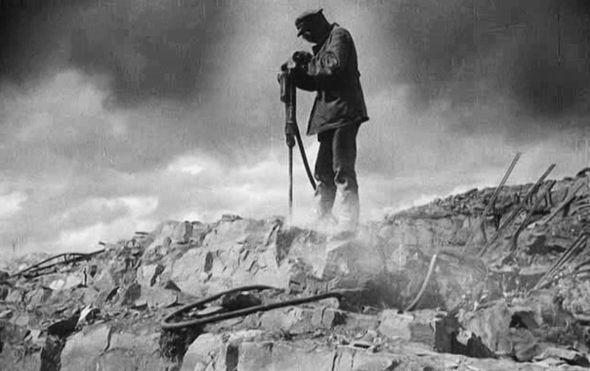
Silent, dynamic and full of energy documentary in 5 parts and with a duration less than one hour on the construction of cotton the way of the USSR — Turkestan-Siberian railway. Interestingly, Director Victor Turin during the revolutionary years attended University in Massachusetts and only returned in 1922, and missed the most important time for the country.
"Andrei Rublev"
Director — Andrei Tarkovsky (1966)
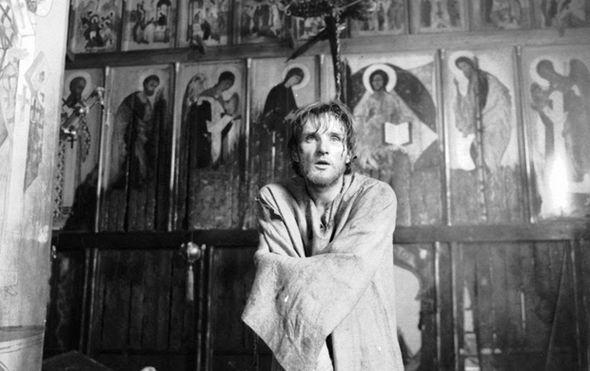
The everyday life of the great painter is essentially a anthology connected end-to-end story line of the parables, where you can see and Christian motifs, and the topic of relationships of power and art. However, primarily this movie that shows what kind of a mess and blood is born art. Burning cow, blinded by craftsmen, scattered through the woods, Nikulin, choking boiling tar — will be a series of colored icons in the final black-and-white film. Each of them can scrutinize and find it a fragment of the scanned picture.
"King Lear"
Director — Grigori Kozintsev (1970)
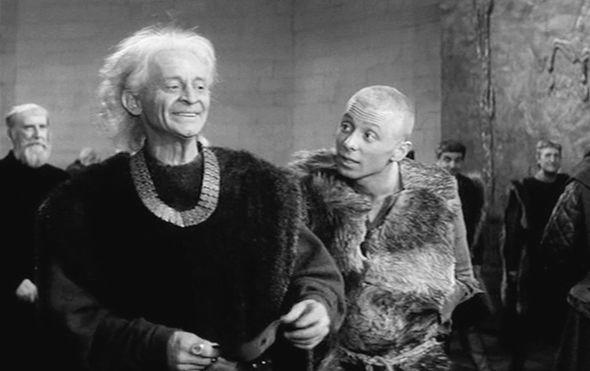
"In the troubled year is always blind for a madman...". A single gram of falsehood in acting (Yuri Yarvet, voiced Zinovy Gerdt, particularly beautiful), a feeble frame — the last film Kozintsev, who shot, by the way, before this excellent hamlet, deserved to appear in this list.
The whimsical angles and the combination of light and shadow if you wish, you can see echoes of Ingmar Bergman, Orson wells, and the obvious similarity with "Andrei Rublev", but above all it is the best adaptation of Shakespeare in the history of Russian cinema.
"Earth"
Director — Aleksandr Dovzhenko (1930)
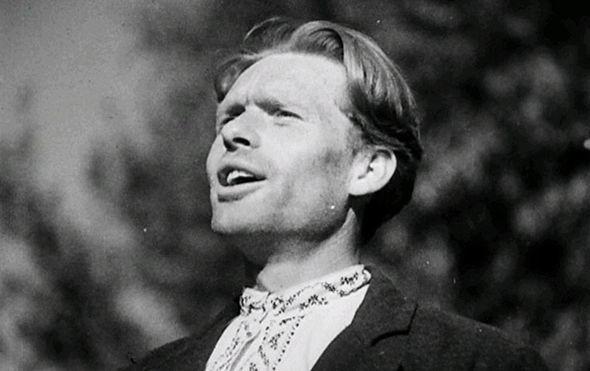
Silent movie about how in the period of collectivization in the village brought the tractor, the fists didn't like it, and they killed a young Communist Vasil.
In the retelling doesn't sound very exciting, but that there is only one single dance of drunken Vasil night on the road, as if caught in a painting of the "Enchanted places". A montage of scenes of working peasants in the field? And the funeral of Vasil that turn into rally, "without priests, and without clerks," with "new songs about the new life?" A frenzied peasant dance in the background sticking out of the ground crosses? Wade bones fusion of poetry and realism, and Platonov, Gogol, lyrical look at the dismantling of the old order and the coming of the new time.
"The cranes are flying" (1957) and "ballad of a soldier" (1959)
Director Mikhail Kalatozov and Grigori Chukhrai
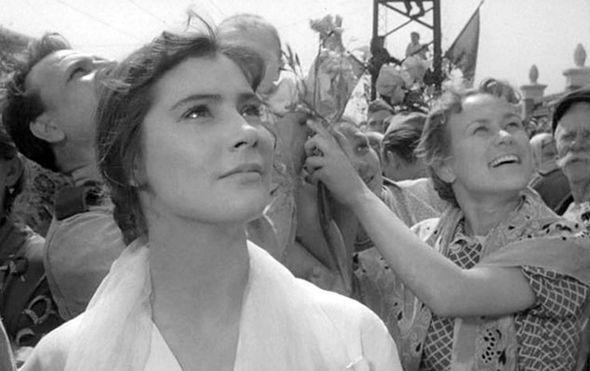
Two beautiful film about love and war, one a poem in prose, the second ballad, as stated in the title.
In deservedly received the "Golden palm" in Cannes "Cranes..." one can endlessly admire the camera work of Sergei Urusevskogo and gaze on the face of Tatiana Samoilova. The film is full of the lyricism of the sixties, the romance, part of the clinch with the aesthetics of Italian neorealism.
However modest, tender and full of humanity picture we about the journey of a soldier who went on leave to see my mother and on the way fell in love with, hurt hurt and remains in the heart of the audience longer. However, everything is subjective.
"Shadows of forgotten ancestors" (1964) and "Color of pomegranates" (1969)
Director: Sergei Parajanov
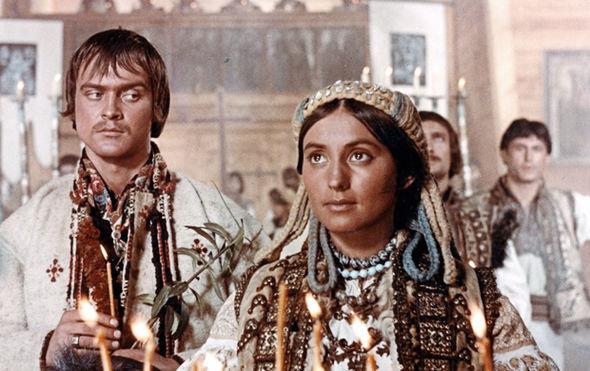
"Shadows of forgotten ancestors" — a poignant love story that is stronger than death, on the Novella by Ukrainian writer Mykhailo kotsyubinskogo. You can speak about the clash in the film pagan and Christian worldviews and folklore. But to feel, just look at mask, at the final funeral, the stunning scene of the murder, when the blood fills the lens of the camera great camera operator Yury Ilyenko.
"The color of pomegranate" — a phantasmagoria, an animated palette of colors, look at the inside world of medieval Armenian poet Sayat-Nova. Here the story gives way to the form on the back burner, but it does not prevent transmission of the mood.
From Parajanov, like no one else, was able to compose poetry in film.
"Alexander Nevsky"
Director — Sergei Eisenstein (1938)
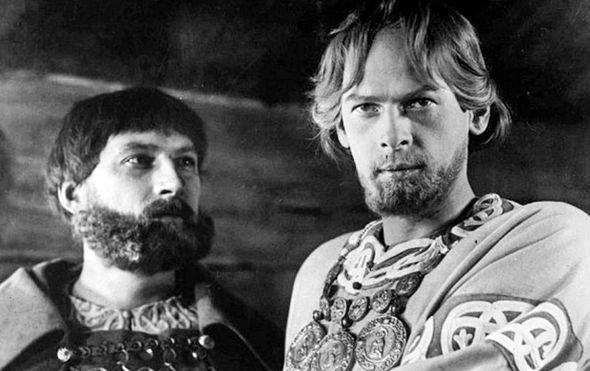
Yes, propaganda film, but what! Impressive scene of the Sich, the "brand" change installation, symbiosis pictures and brilliant music of Sergei Prokofiev. What is the moment when on the horizon appears an avalanche of Teutonic knights, and the sounds of drums and horns give way to the darkly majestic, almost Church music theme. But worry not, of course, is nature itself on our side, and all the Germans will go under the ice.
"Ivan The Terrible"
Director — Sergei Eisenstein (1944)
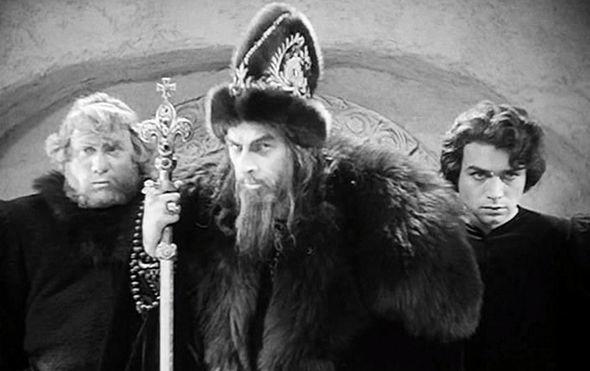
Here, well-everything from the strongest image and playing of Nikolai Cherkasov, costumes and decorations to variations in the color of the dance of the oprichniks in the second, did not like Stalin and banned movie (strange that the list includes only the first series of the film). Now some of the nuances of the acting may seem slightly comical, but before the tangible, serious power of the paintings fall away any questions.
"Ordinary fascism"
Director — Mikhail Romm (1967)
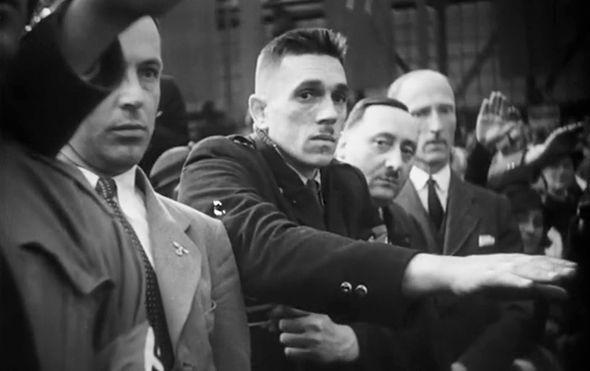
Masterpiece Romm recommended viewing for not only documentary filmmakers and film scholars — a combination of terrible shots, caustic voice over and rousing music still has a very strong effect.
"War and peace"
Director — Sergei Bondarchuk (1967)
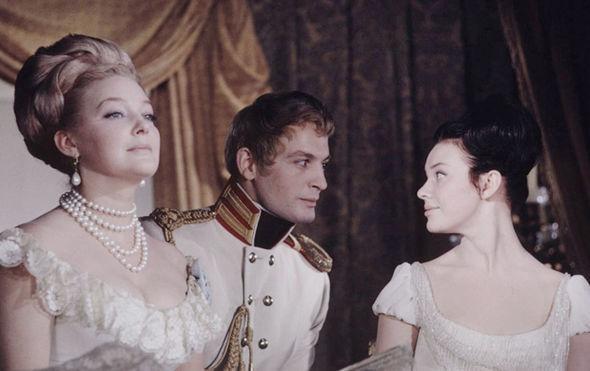
The major Soviet film and, as it may belong, certainly a brave attempt of a novel to film impossibly novel by Russian classic.
"The ascent"
Director: Larisa Shepitko (1976)
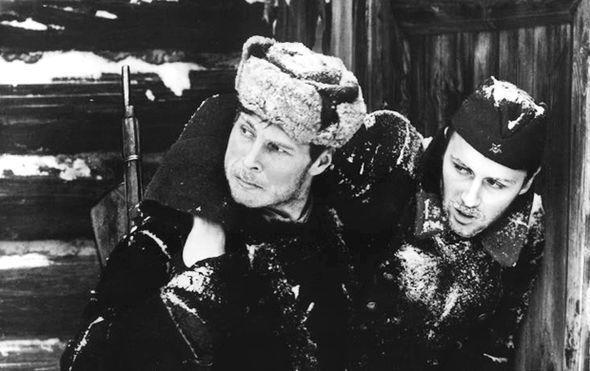
A military movie based on the story of Vasil Bykov "Sotnikov" raises important moral issues and at some point turns into a biblical parable. Music by Alfred Schnittke, the game gostuhin, Plotnikova and Solonitsyn and directed a brilliant Larisa Shepitko literally take out the soul.
"Nostalgia"Directed By — Andrei Tarkovsky (1983)
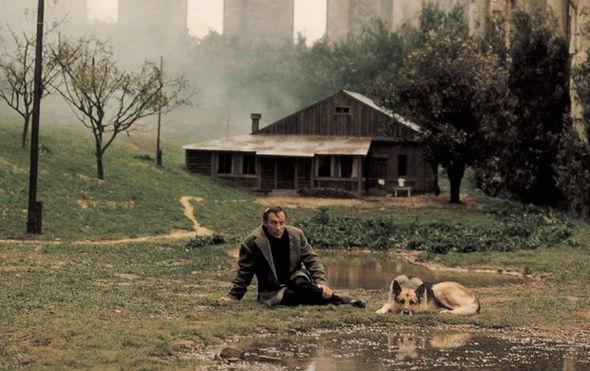
Italian Tarkovsky's film scripted by Tonino Guerra with Oleg Jankowski in the title role is full of classical music, snatches of poetry, gravitas and fog literally and figuratively. It is possible to love or not to love (in the end, here was born the "sharkovshina" have ruined many young Directors), but in this case it is a real art, without the quotes.
Also interesting: Soviet films for children Twenty-dazzling beauties of the Soviet cinema
"Russian ark"
Director Alexander Sokurov (2002)
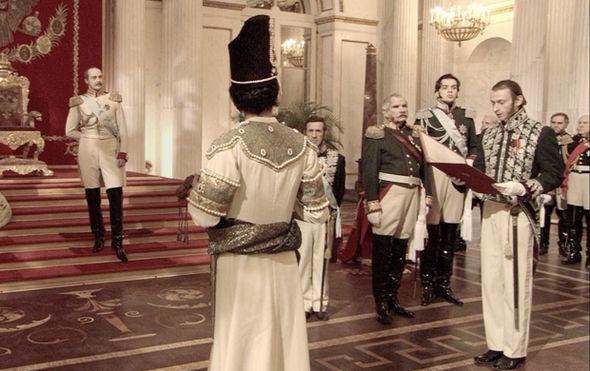
The film certainly deserves attention due to technical reception which he makes the cornerstone of the whole structure. Yes, the film is shot with a single shot, without mounting adhesions in one and a half hours, the camera travels through the Winter Palace, "cultural ark" of Russia, and this, at least, beautiful.published
P. S. And remember, only by changing their consumption — together we change the world! ©
Source: cameralabs.org/10342-20-russkikh-filmov-kotorye-garvardskij-universitet-poschital-obyazatelnymi-k-prosmotru
Film critic Dmitry Karpyuk explained what's so good about these pictures, and why they are so highly appreciated at Harvard.
"Kino-eye" (1924) and "Man with a movie camera" (1928)
Director: Dziga Vertov

It is not clear how they can be considered separately. Both films are like a dark magician's top hat — all possible kunshtyukov and technical tricks were invented 20 years Vertabim, and filmmakers I admire and borrow them until now. "Battleship "Potemkin""
Director — Sergei Eisenstein (1925)

One of the best if not the best film of all time, according to the opinion of many authoritative critics, filmmakers and ordinary viewers. The film will definitely be interesting and innovative installation and raskatannoe to quote the scene of the shooting on the Odessa steps, but one of the most vivid and painful images in the movie — the awakening of the sailors of the battleship from sleep slave once they tried to feed worms meat. After a meal they seemed to see clearly the essence of its existence and break out of the cocoon of apathy and obedience. All the rest is history, including the history of cinema.
"Under the law"
Director — Lev Kuleshov (1926)

In this adaptation of the story of Jack London "Unexpected" Kuleshov built Yukon on the Moscow river. First and foremost, the film is a remarkable combination of ragged editing and long plans, but even aside from the technical nuances, it still looks like at least with interest because of the moral dilemma is to make the murderer a lynching or to give it into the hands of the law.
"Mother" (1926) and "the End of St. Petersburg" (1927)
Director: Vsevolod Pudovkin

The first film, an adaptation of Maxim Gorky and one of the greatest achievements of the Soviet cinema. A poignant story about the family of the father of the black hundreds, the son of a revolutionary and loving mother, dying with a red banner in his hands beneath the hooves of mounted police.
The second is also a political film about the struggle of the Bolsheviks with the world of capital, the collapse of the Empire through the tragedy of the little man.
Makes them not only the absence of sound, the call to "sing, revolution!" and a fascinating use of multiple exposures, but the actor Alexander Chistyakov. In one film he played the father-the tyrant with a beard of pan, and the other work leading the storming of the Winter Palace.
"Turksib"
Director: Viktor Turin (1929)

Silent, dynamic and full of energy documentary in 5 parts and with a duration less than one hour on the construction of cotton the way of the USSR — Turkestan-Siberian railway. Interestingly, Director Victor Turin during the revolutionary years attended University in Massachusetts and only returned in 1922, and missed the most important time for the country.
"Andrei Rublev"
Director — Andrei Tarkovsky (1966)

The everyday life of the great painter is essentially a anthology connected end-to-end story line of the parables, where you can see and Christian motifs, and the topic of relationships of power and art. However, primarily this movie that shows what kind of a mess and blood is born art. Burning cow, blinded by craftsmen, scattered through the woods, Nikulin, choking boiling tar — will be a series of colored icons in the final black-and-white film. Each of them can scrutinize and find it a fragment of the scanned picture.
"King Lear"
Director — Grigori Kozintsev (1970)

"In the troubled year is always blind for a madman...". A single gram of falsehood in acting (Yuri Yarvet, voiced Zinovy Gerdt, particularly beautiful), a feeble frame — the last film Kozintsev, who shot, by the way, before this excellent hamlet, deserved to appear in this list.
The whimsical angles and the combination of light and shadow if you wish, you can see echoes of Ingmar Bergman, Orson wells, and the obvious similarity with "Andrei Rublev", but above all it is the best adaptation of Shakespeare in the history of Russian cinema.
"Earth"
Director — Aleksandr Dovzhenko (1930)

Silent movie about how in the period of collectivization in the village brought the tractor, the fists didn't like it, and they killed a young Communist Vasil.
In the retelling doesn't sound very exciting, but that there is only one single dance of drunken Vasil night on the road, as if caught in a painting of the "Enchanted places". A montage of scenes of working peasants in the field? And the funeral of Vasil that turn into rally, "without priests, and without clerks," with "new songs about the new life?" A frenzied peasant dance in the background sticking out of the ground crosses? Wade bones fusion of poetry and realism, and Platonov, Gogol, lyrical look at the dismantling of the old order and the coming of the new time.
"The cranes are flying" (1957) and "ballad of a soldier" (1959)
Director Mikhail Kalatozov and Grigori Chukhrai

Two beautiful film about love and war, one a poem in prose, the second ballad, as stated in the title.
In deservedly received the "Golden palm" in Cannes "Cranes..." one can endlessly admire the camera work of Sergei Urusevskogo and gaze on the face of Tatiana Samoilova. The film is full of the lyricism of the sixties, the romance, part of the clinch with the aesthetics of Italian neorealism.
However modest, tender and full of humanity picture we about the journey of a soldier who went on leave to see my mother and on the way fell in love with, hurt hurt and remains in the heart of the audience longer. However, everything is subjective.
"Shadows of forgotten ancestors" (1964) and "Color of pomegranates" (1969)
Director: Sergei Parajanov

"Shadows of forgotten ancestors" — a poignant love story that is stronger than death, on the Novella by Ukrainian writer Mykhailo kotsyubinskogo. You can speak about the clash in the film pagan and Christian worldviews and folklore. But to feel, just look at mask, at the final funeral, the stunning scene of the murder, when the blood fills the lens of the camera great camera operator Yury Ilyenko.
"The color of pomegranate" — a phantasmagoria, an animated palette of colors, look at the inside world of medieval Armenian poet Sayat-Nova. Here the story gives way to the form on the back burner, but it does not prevent transmission of the mood.
From Parajanov, like no one else, was able to compose poetry in film.
"Alexander Nevsky"
Director — Sergei Eisenstein (1938)

Yes, propaganda film, but what! Impressive scene of the Sich, the "brand" change installation, symbiosis pictures and brilliant music of Sergei Prokofiev. What is the moment when on the horizon appears an avalanche of Teutonic knights, and the sounds of drums and horns give way to the darkly majestic, almost Church music theme. But worry not, of course, is nature itself on our side, and all the Germans will go under the ice.
"Ivan The Terrible"
Director — Sergei Eisenstein (1944)

Here, well-everything from the strongest image and playing of Nikolai Cherkasov, costumes and decorations to variations in the color of the dance of the oprichniks in the second, did not like Stalin and banned movie (strange that the list includes only the first series of the film). Now some of the nuances of the acting may seem slightly comical, but before the tangible, serious power of the paintings fall away any questions.
"Ordinary fascism"
Director — Mikhail Romm (1967)

Masterpiece Romm recommended viewing for not only documentary filmmakers and film scholars — a combination of terrible shots, caustic voice over and rousing music still has a very strong effect.
"War and peace"
Director — Sergei Bondarchuk (1967)

The major Soviet film and, as it may belong, certainly a brave attempt of a novel to film impossibly novel by Russian classic.
"The ascent"
Director: Larisa Shepitko (1976)

A military movie based on the story of Vasil Bykov "Sotnikov" raises important moral issues and at some point turns into a biblical parable. Music by Alfred Schnittke, the game gostuhin, Plotnikova and Solonitsyn and directed a brilliant Larisa Shepitko literally take out the soul.
"Nostalgia"Directed By — Andrei Tarkovsky (1983)

Italian Tarkovsky's film scripted by Tonino Guerra with Oleg Jankowski in the title role is full of classical music, snatches of poetry, gravitas and fog literally and figuratively. It is possible to love or not to love (in the end, here was born the "sharkovshina" have ruined many young Directors), but in this case it is a real art, without the quotes.
Also interesting: Soviet films for children Twenty-dazzling beauties of the Soviet cinema
"Russian ark"
Director Alexander Sokurov (2002)

The film certainly deserves attention due to technical reception which he makes the cornerstone of the whole structure. Yes, the film is shot with a single shot, without mounting adhesions in one and a half hours, the camera travels through the Winter Palace, "cultural ark" of Russia, and this, at least, beautiful.published
P. S. And remember, only by changing their consumption — together we change the world! ©
Source: cameralabs.org/10342-20-russkikh-filmov-kotorye-garvardskij-universitet-poschital-obyazatelnymi-k-prosmotru
Tags
See also
Star pair of Soviet cinema
Hollywood stars in the Soviet cinema (35 fotozhab)
20 most beautiful actors of the Soviet cinema
20 most beautiful actors of the Soviet cinema
Unusual desserts from frozen fruit
Classic Soviet cinema
25 photos, in which the food will make you say "Oh, damn!"
Soviet cinema through the eyes of the correspondent of the magazine LIFE (27 photos)
